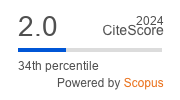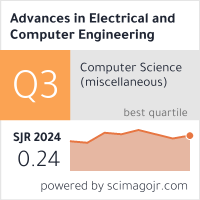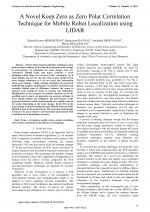| 4/2016 - 3 |
A Novel Keep Zero as Zero Polar Correlation Technique for Mobile Robot Localization using LIDARSIDHARTHAN, R. K. |
| Extra paper information in |
| Click to see author's profile in |
| Download PDF |
Author keywords
correlation, mobile robots, pattern matching, sensor fusion, simultaneous localization and mapping
References keywords
systems(9), slam(9), scan(8), robotics(8), matching(8), fast(6), data(6), localization(5), laser(5), automation(5)
Blue keywords are present in both the references section and the paper title.
About this article
Date of Publication: 2016-11-30
Volume 16, Issue 4, Year 2016, On page(s): 15 - 22
ISSN: 1582-7445, e-ISSN: 1844-7600
Digital Object Identifier: 10.4316/AECE.2016.04003
Web of Science Accession Number: 000390675900003
SCOPUS ID: 85007524779
Abstract
Sensor fusion based localization techniques often need accurate estimate of the fast and uncertain scene change in environment. To determine the scene change from two consecutive LIDAR scans, this paper proposes a novel technique called 'keep zero as zero' polar correlation. As it name implies any zero in the scan data is kept isolated from scene change estimation as it do not carry any information about scene change. Unlike existing techniques, the proposed methodology employs minimization of selective horizontal and vertically shifted sum of difference between the scans to estimate scene change in terms of rotation and translation. Minimization of the proposed correlation function across the specified search space can guarantee an accurate estimate of scene change without any ambiguity. The performance of the proposed method is tested experimentally on a mobile robot in two modes depending on the scene change. In the first mode, scene change is detected using dynamic LIDAR, whereas static LIDAR is used in the second mode. The proposed methodology is found to be more robust to environmental uncertainties with a reliable level of localization accuracy. |
| References | | | Cited By |
Web of Science® Times Cited: 0
View record in Web of Science® [View]
View Related Records® [View]
Updated today
SCOPUS® Times Cited: 1
View record in SCOPUS® [Free preview]
View citations in SCOPUS® [Free preview]
There are no citing papers in the CrossRef Cited-by Linking system.
Disclaimer: All information displayed above was retrieved by using remote connections to respective databases. For the best user experience, we update all data by using background processes, and use caches in order to reduce the load on the servers we retrieve the information from. As we have no control on the availability of the database servers and sometimes the Internet connectivity may be affected, we do not guarantee the information is correct or complete. For the most accurate data, please always consult the database sites directly. Some external links require authentication or an institutional subscription.
Web of Science® is a registered trademark of Clarivate Analytics, Scopus® is a registered trademark of Elsevier B.V., other product names, company names, brand names, trademarks and logos are the property of their respective owners.
Faculty of Electrical Engineering and Computer Science
Stefan cel Mare University of Suceava, Romania
All rights reserved: Advances in Electrical and Computer Engineering is a registered trademark of the Stefan cel Mare University of Suceava. No part of this publication may be reproduced, stored in a retrieval system, photocopied, recorded or archived, without the written permission from the Editor. When authors submit their papers for publication, they agree that the copyright for their article be transferred to the Faculty of Electrical Engineering and Computer Science, Stefan cel Mare University of Suceava, Romania, if and only if the articles are accepted for publication. The copyright covers the exclusive rights to reproduce and distribute the article, including reprints and translations.
Permission for other use: The copyright owner's consent does not extend to copying for general distribution, for promotion, for creating new works, or for resale. Specific written permission must be obtained from the Editor for such copying. Direct linking to files hosted on this website is strictly prohibited.
Disclaimer: Whilst every effort is made by the publishers and editorial board to see that no inaccurate or misleading data, opinions or statements appear in this journal, they wish to make it clear that all information and opinions formulated in the articles, as well as linguistic accuracy, are the sole responsibility of the author.



